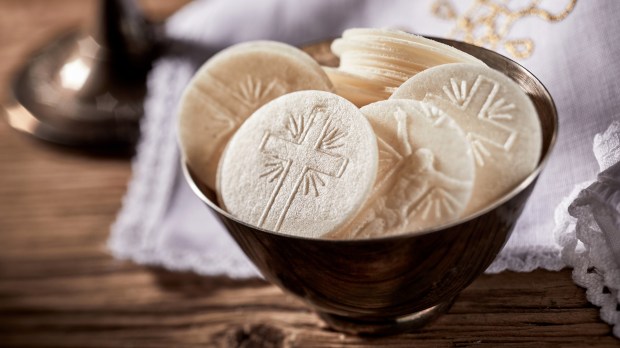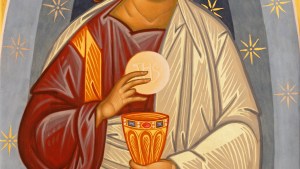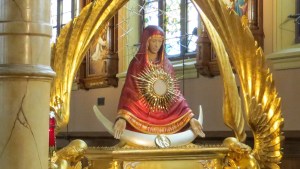Catholic Churches today feature a large box called a tabernacle, where consecrated hosts are kept after Mass.
This custom took many centuries to be established, as early Christians did not have their own permanent churches. Instead, they were constantly on the move, celebrating Mass in people’s homes or in hiding.
Consequently, it should come as no surprise that there were no fixed tabernacles to house consecrated hosts, but only portable boxes.
James Monti, in the book published by Our Sunday Visitor called In the Presence of Our Lord, notes this early custom.
[F]rom the Vatican catacombs there are surviving examples of the arca, a small box used by the early Church for carrying the reserved Blessed Sacrament, made of gold and thought to date from the second or third century.
This was a way for Christians to protect the Eucharist from desecration by the pagans of Rome, and also to provide the Blessed Sacrament to the sick and homebound.
The Catholic Encyclopedia further confirms this early practice, and recounts one of the first Eucharistic miracles that occurred in the Church’s history.
Arca: A box in which the Eucharist was kept by the primitive Christians in their homes. St. Cyprian (De lapsis, 26) tells of a woman “who with unworthy hands” attempted “to open her box in which was the Holy (Body) of the Lord,” but was unable to do so because of fire which issued therefrom the moment she touched it. A representation of the Eucharistic Arca is believed by Wilpert to exist in a fresco of the catacomb of Sts. Peter and Marcellinus. The scene depicts Christ seated, reading from an open roll; on His right are three amphoræ, and on the left a square box filled with loaves, symbols of the Eucharist.
Eventually, when Christians were able to build permanent structures for the liturgy, they also created different kinds of tabernacles to house the consecrated hosts.
This shows that even from the very beginning, Christians knew that this “bread” was different and was the very presence of God.



